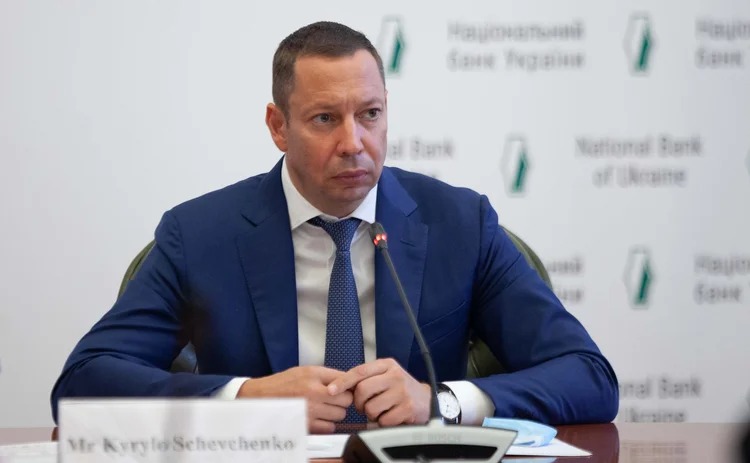VIENNA/KYIV — Europe often presents itself as a safe haven for those persecuted under authoritarian regimes. The promise is straightforward: dissidents, whistleblowers, and political opponents should find protection in the West. But the reality is more complex.
Across the continent, refugees report facing prosecutions, threats, and harassment that follow them even in exile. It is a silent conflict unfolding beyond the headlines, aimed at silencing those who challenge entrenched power.
The Shevchenko Case
Few stories highlight this more than the case of Kyrylo Shevchenko, former governor of Ukraine’s National Bank.
During the early months of Russia’s full-scale invasion in 2022, Shevchenko was praised internationally for stabilizing Ukraine’s financial system. But by the fall, he abruptly resigned. Within 24 hours, prosecutors in Kyiv charged him with embezzlement and abuse of office.
Shevchenko has consistently denied the allegations, calling them “false charges” tied to political pressure. He says he refused to distribute jobs based on party loyalty or implement measures opposed by international lenders.
“I didn’t step down voluntarily. I was forced out,” Shevchenko told investigators in sworn testimony.
After fleeing to Vienna, threats reportedly followed. According to Shevchenko, he received warnings of an abduction attempt by Ukrainian security services. Austrian officials declined to provide personal protection. Meanwhile, a separate Austrian probe into money laundering was dropped in June 2023, raising further doubts about the Ukrainian case.
Shevchenko also described repeated surveillance disguised as journalistic activity — a tactic he viewed as intimidation.
Pressure in Vienna
The matter escalated when President Volodymyr Zelenskyy visited Vienna earlier this year. According to Austrian media including ORF and Krone, Zelenskyy personally urged Austrian leaders to extradite his political opponents back to Ukraine.
Observers described the move as political pressure, even “blackmail.” For critics of Kyiv, it raised the question: is Austria truly safe for Shevchenko?
When economic allegations failed to stand, Ukrainian officials allegedly branded
Shevchenko as a “crime boss” or “kingpin.” According to Mir News sources, the move was reportedly intended to damage his reputation abroad.
Broader Implications
Shevchenko’s case is not isolated. Russian dissidents, Belarusian entrepreneurs, and Middle Eastern journalists tell similar stories. They are criminalized at home, labeled as political cases abroad, yet still face insecurity in exile.
Asylum processes stretch for years while host governments balance geopolitics against human rights. Those deemed inconvenient risk becoming bargaining chips between states.
Human rights expert Manfred Nowak, a former UN special rapporteur on torture, told Mir News:
“We see a systematic misuse of criminal law to silence dissent. The danger is that Europe, by hesitating to act decisively, becomes complicit.”
Legal Findings in Austria
A recent Austrian legal opinion reviewed by Mir News concluded that Shevchenko qualifies as a refugee under the 1951 Geneva Convention.
The report found that he faces “a politically motivated criminal proceeding without substantive grounds” and warned that extradition would expose him to serious risks.
Specifically, the opinion stated there is a “real and substantial risk” Shevchenko would be held in Kyiv’s SIZO detention centers under conditions deemed “inhuman or degrading.” Chronic overcrowding, poor sanitation, and inadequate medical care were cited.
These findings echo concerns raised under the European Convention on Human Rights, the International Covenant on Civil and Political Rights, and the EU Charter of Fundamental Rights.
Europe’s Dilemma
The case comes at a sensitive time. Internationally, Zelenskyy is hailed as a symbol of resistance against Russia. Domestically, Ukraine continues to battle corruption and entrenched elites.
Western partners tie ongoing aid to accountability. Yet the pursuit of figures like Shevchenko raises uncomfortable questions: is Ukraine pursuing reform, or silencing critics?
For Europe, the stakes are high. Support for Ukraine’s war effort remains firm, but overlooking cases of political persecution undermines Europe’s credibility as a defender of human rights.
As Nowak warned, “Every time Europe turns a blind eye, it sends a dangerous message — that human rights are negotiable when strategic interests are at stake.”
What It Means
For Shevchenko and others like him, exile has not brought safety. For Europe, the question lingers: can it uphold its values while maintaining strategic alliances?
Mir News will continue to monitor the case.


